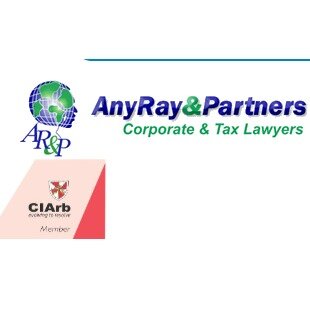Best Labor Law Lawyers in Ivory Coast
Share your needs with us, get contacted by law firms.
Free. Takes 2 min.
Or refine your search by selecting a city:
List of the best lawyers in Ivory Coast
About Labor Law in Ivory Coast:
Labor Law in Ivory Coast governs the relationship between employers and employees, ensuring fair treatment, protection of rights, and proper labor conditions. It covers aspects such as wages, working hours, leave, termination of employment, and workplace safety.
Why You May Need a Lawyer:
You may need a lawyer in situations such as unfair dismissal, discrimination, breach of contract, wage disputes, or when negotiating employment terms. A lawyer can provide legal advice, represent you in court, and help protect your rights as an employee.
Local Laws Overview:
In Ivory Coast, the Labor Code sets out regulations governing labor relations. Key aspects include minimum wage, working hours, overtime pay, annual leave, sick leave, social security contributions, and procedures for resolving labor disputes.
Frequently Asked Questions:
1. What is the minimum wage in Ivory Coast?
The minimum wage in Ivory Coast is set by the government and regularly adjusted. As of 2021, it is XOF 60,000 per month.
2. How many hours per week can I be required to work?
According to the Labor Code, the standard working week in Ivory Coast is 40 hours, with a maximum of 8 hours per day.
3. What are my rights in case of unfair dismissal?
If you believe you have been unfairly dismissed, you can challenge the decision before a labor court. An employer must provide a valid reason for termination and follow due process.
4. Am I entitled to paid leave?
Employees in Ivory Coast are entitled to paid annual leave after completing one year of continuous service. The amount of leave varies depending on the length of employment.
5. Can my employer deduct my wages without my consent?
An employer cannot make deductions from an employee's wages without their consent, except in specific circumstances outlined in the Labor Code.
6. What are the regulations regarding workplace safety?
Employers in Ivory Coast are required to provide a safe working environment, train employees on safety measures, and comply with health and safety regulations to prevent accidents and injuries.
7. Can I be discriminated against based on my gender or ethnicity?
Discrimination based on gender, ethnicity, religion, or any other grounds is prohibited in Ivory Coast. Employers must ensure equal treatment and opportunities for all employees.
8. How can I file a complaint against my employer for labor law violations?
If you believe your employer has violated labor laws, you can file a complaint with the Ministry of Employment or seek legal advice from a lawyer to pursue your rights through legal channels.
9. Are there specific regulations for hiring minors?
The Labor Code prohibits the employment of children under the age of 16 in hazardous or exploitative work. Special regulations apply to the employment of minors, including restrictions on working hours and conditions.
10. What are my rights in case of maternity or paternity leave?
Female employees are entitled to maternity leave with full pay, while male employees can take paternity leave to support their partner. Employees have the right to return to their job after taking maternity or paternity leave.
Additional Resources:
For more information on Labor Law in Ivory Coast, you can contact the Ministry of Employment, the National Institute for Social Security, or seek assistance from legal aid organizations such as the Ivorian Bar Association.
Next Steps:
If you require legal assistance or have any questions regarding Labor Law in Ivory Coast, consider consulting a qualified labor lawyer who can provide guidance and representation to protect your rights as an employee.
Lawzana helps you find the best lawyers and law firms in Ivory Coast through a curated and pre-screened list of qualified legal professionals. Our platform offers rankings and detailed profiles of attorneys and law firms, allowing you to compare based on practice areas, including Labor Law, experience, and client feedback.
Each profile includes a description of the firm's areas of practice, client reviews, team members and partners, year of establishment, spoken languages, office locations, contact information, social media presence, and any published articles or resources. Most firms on our platform speak English and are experienced in both local and international legal matters.
Get a quote from top-rated law firms in Ivory Coast — quickly, securely, and without unnecessary hassle.
Disclaimer:
The information provided on this page is for general informational purposes only and does not constitute legal advice. While we strive to ensure the accuracy and relevance of the content, legal information may change over time, and interpretations of the law can vary. You should always consult with a qualified legal professional for advice specific to your situation.
We disclaim all liability for actions taken or not taken based on the content of this page. If you believe any information is incorrect or outdated, please contact us, and we will review and update it where appropriate.
Browse labor law law firms by city in Ivory Coast
Refine your search by selecting a city.












